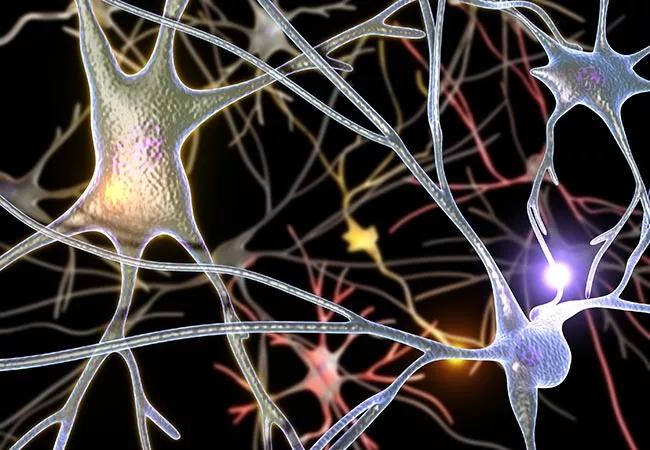Observational study suggests age may be a better guide than disease stability

Image content: This image is available to view online.
View image online (https://assets.clevelandclinic.org/transform/b285bd80-1e37-496b-9f88-48336d087229/18-NEU-5744-MS-Therapy-650x450_jpg)
18-NEU-5744-MS-Therapy-650×450
Stopping disease-modifying therapy (DMT) in patients with multiple sclerosis (MS) after age 60 may be a good strategy, suggests an observational study out of Cleveland Clinic.
Advertisement
Cleveland Clinic is a non-profit academic medical center. Advertising on our site helps support our mission. We do not endorse non-Cleveland Clinic products or services. Policy
“Our research indicates that being 60 or older is an important predictor of success for discontinuing DMT,” says Cleveland Clinic neurologist Le Hua, MD, who presented findings from the study at the 2018 ECTRIMS (European Committee for Treatment and Research in Multiple Sclerosis) Congress in October.
She and colleagues retrospectively analyzed a cohort of 600 patients with MS over the age of 60. Of those, 178 patients stopped DMT after being on it for at least two years. Subjects were patients from MS clinics at three Cleveland Clinic locations — in Florida, Nevada and Ohio — where data on quality-of-life measures are collected routinely at clinic visits. The researchers observed minimal effect on quality-of-life outcomes and MRI indicators of disease progression over a median follow-up of more than 18 months compared with the 422 patients in the cohort who continued DMT.
The question of whether and when to stop DMT in MS is a controversial one. Because DMTs have been clinically available for a quarter century and are increasingly initiated early in the course of MS, many patients have now experienced decades of DMT management, raising concern about the potential for this immune-modulating strategy to cause harm, such as through increased risk of infections.
“It’s suspected that current DMTs may no longer benefit patients past a certain age, due to dwindling inflammatory activity or to a patient’s having already reached significant disability,” explains Dr. Hua, the Eric and Sheila Samson Chair for Multiple Sclerosis Research at Cleveland Clinic Lou Ruvo Center for Brain Health in Las Vegas. “This has led clinicians and patients to consider stopping DMT.”
Advertisement
Prior to the current study, Dr. Hua’s team conducted an initial analysis of the same patient population published earlier this year in Multiple Sclerosis Journal (2018 Mar 1 [Epub ahead of print]). That study found only one clinical relapse among the 178 DMT discontinuers. Only 11 percent of patients restarted DMT; those who did so were more likely to have initially discontinued therapy on their own rather than because of physician guidance.
The current analysis evaluated quality-of-life outcomes (EQ-5D® score, Multiple Sclerosis Performance Scales, Timed 25-Foot Walk, Patient Health Questionnaire-9) and MRI changes (number of T1 gadolinium-enhancing lesions and new T2 lesions) in the study population. No significant differences were found between those who stopped and those who continued DMT except for general health status, as measured by the EQ-5D, which showed discontinuers performing slightly better over time. That difference, Dr. Hua cautions, may not be clinically important.
In the wake of her team’s analyses, Dr. Hua points out several principles germane to decisions around whether and when to consider stopping DMT:
Advertisement
Dr. Hua emphasizes that prospective randomized trials are needed to develop optimal strategies for discontinuing DMT. Cleveland Clinic is participating in one such trial, which is recruiting patients and anticipated to run until 2021. To qualify, patients must be at least 55 years old; have confirmed relapsing-remitting MS, secondary progressive MS or primary progressive MS; and have been using a DMT for at least two years without an MS relapse in the past five years. More details of the trial can be found here.
“We don’t yet have definitive answers for whether and when to stop DMT, but we need to manage patients today based on the best evidence,” adds Dr. Hua. “Our studies provide some reassurance for doctors and patients that discontinuing DMT likely can be done after age 60 without causing harm.”
Advertisement
Advertisement
Guidance from the largest cohort of SEEG-confirmed insular epilepsy patients reported to date
Ethical guidance provides guardrails so medical advances benefit patients
OCEANIC-STROKE results represent long-sought advance in secondary stroke prevention
Two studies from Cleveland Clinic may help advance the technology toward broader clinical use
Distinct MRI signature includes lesions beyond the corpus callosum, features predictive of vision and hearing loss
An argument for clarifying the nomenclature
An expert talks through the benefits, limits and unresolved questions of an evolving technology
Recommendations on identifying and managing neurodevelopmental and related challenges